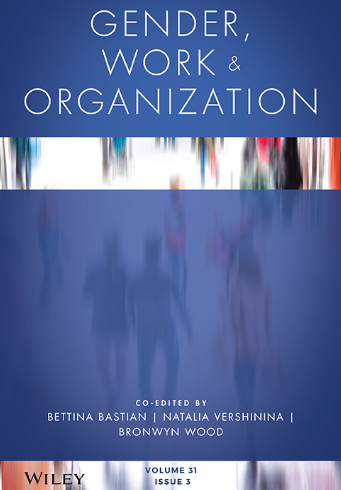Inclusion o'clock—Time embodiment in the experiences of disabled employees
Abstract
This study introduces the concept of “timeism” to examine how ableist assumptions about time and productivity intersect to marginalize disabled workers in organizational contexts. Drawing on qualitative interviews with disabled workers in Cyprus, we explore how ableist temporalities shape experiences of marginalization and resistance in the workplace. Our analysis reveals that disabled workers navigate and resist marginalizing temporal expectations while also internalizing normative pressures around pace and productivity. The study makes three key contributions: (1) it conceptualizes timeism as a theoretical framework for understanding the temporal dimensions of ableism in organizations; (2) it empirically demonstrates how timeist norms create interlocking disadvantages for disabled employees; and (3) it highlights the importance of an intersectional approach to understanding experiences of time and ableism in the workplace. The COVID-19 pandemic's disruption of conventional work rhythms provides a unique opportunity to rethink temporal norms and develop more inclusive practices. This research advocates for workplace practices that challenge ableist values and center marginalized workers' experiences, offering important implications for theory and practice in disability studies and organizational research.

 求助内容:
求助内容: 应助结果提醒方式:
应助结果提醒方式:


